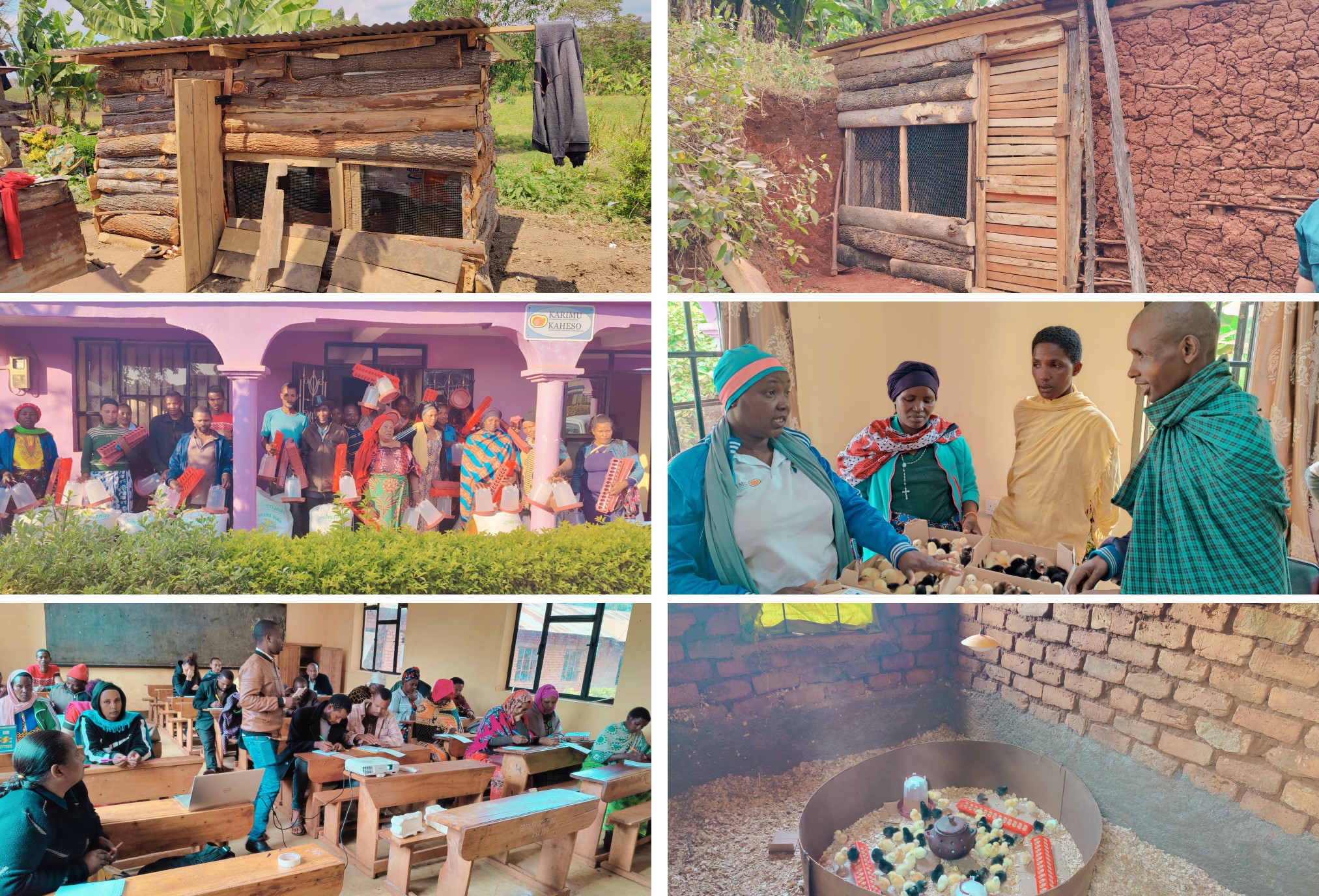Categories:
- Income
Status:
Start Date:
Cost:
Increase income for those with limited access to land
Pilot project on chicken farming
Karimu was established to eliminate poverty in rural areas of Tanzania in a sustainable way. After several years focusing on building infrastructure and local capabilities to address education, health, and sanitation, in recent years Karimu is also focused on improving income generation through entrepreneurship skills training, savings groups for access to capital, and identification of commercially viable opportunities appropriate for communities that are accustomed to farming and raising livestock.
Raising chickens on a small scale is not new to Arri and Ayalagaya Wards. But the local breeds mature slowly (requiring eighteen months rather than the ideal three months) and produce small quantities of eggs (no more than sixty eggs per year rather than the three hundred laid by the best commercial hens), limiting the commercial potential. More recently a few farmers have attempted to raise chickens commercially, but several factors like disease outbreak, lack of quality breed, poor growth rate and lack of capital have made them unsuccessful.
However, Karimu believes there may be an opportunity for profitable commercial chicken production in Arri and Ayalagaya Wards. To validade this hypothesis, Karimu is promoting a pilot project based on introducing hybrid/dual purpose chickens, changing the behavior of local farmers in order to raise chickens effectively, connecting farmers to viable markets, changing farmers’ mindset in considering raising chickens as a business, and training farmers to run their chicken business effectively.
The main goal of this pilot is to validate the assumptions made about raising chickens commercially in the Karimu Income Strategy. (Karimu is already running other pilot projects in green beans and vanilla to validate the assumptions related to these areas).
A secondary goal is to assess the potential to raise the income of the poorest households in the region as well as the interest of young adults in running chicken businesses. We believe that if there is sufficient interest by young people, we can tailor a combined program that includes aspects of entrepreneurship training and access to credit through savings groups in order to create a more robust income-generation, chicken business.
The pilot will consist of supporting 30 farmers, 20 of each will be from young adults and/or members of the families identified as the poorest. Karimu will provide loans covering initial costs of acquiring and raising the chicks, whereas farmers will provide an appropriate chicken coop. Each farmer will have to contribute ~$155 ($110 of which is from a Karimu loan) to start their chicken business and Karimu will subsidize each with ~$35. In some cases, Karimu will donate metal roofing so the chicken coops can provide adequate protection. Karimu will provide training in chicken raising, savings groups, and entrepreneurship skills, marking an important step towards integrating all the programs related to income generation.
Success criteria:
-
Cost, revenue, and profitability assumptions from the Karimu Income Strategy are validated with at least two thirds of participating farmers
-
At least eighty percent of production is sold without delay
-
Clarity about the existence of an accessible market to scale project
-
At least ninety percent of farmers in regular households (not poorest of the poor and not youth) are satisfied with pilot
-
Ability to determine whether raising chickens is an adequate income project for young adults and poorest of the poor

Benefits:
-
Additional income accessible for community members with limited access to land
Cost:
-
Karimu cost: $6,600 (includes loan)
-
Farmers cost: $3255


